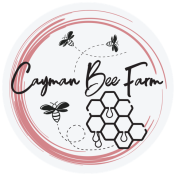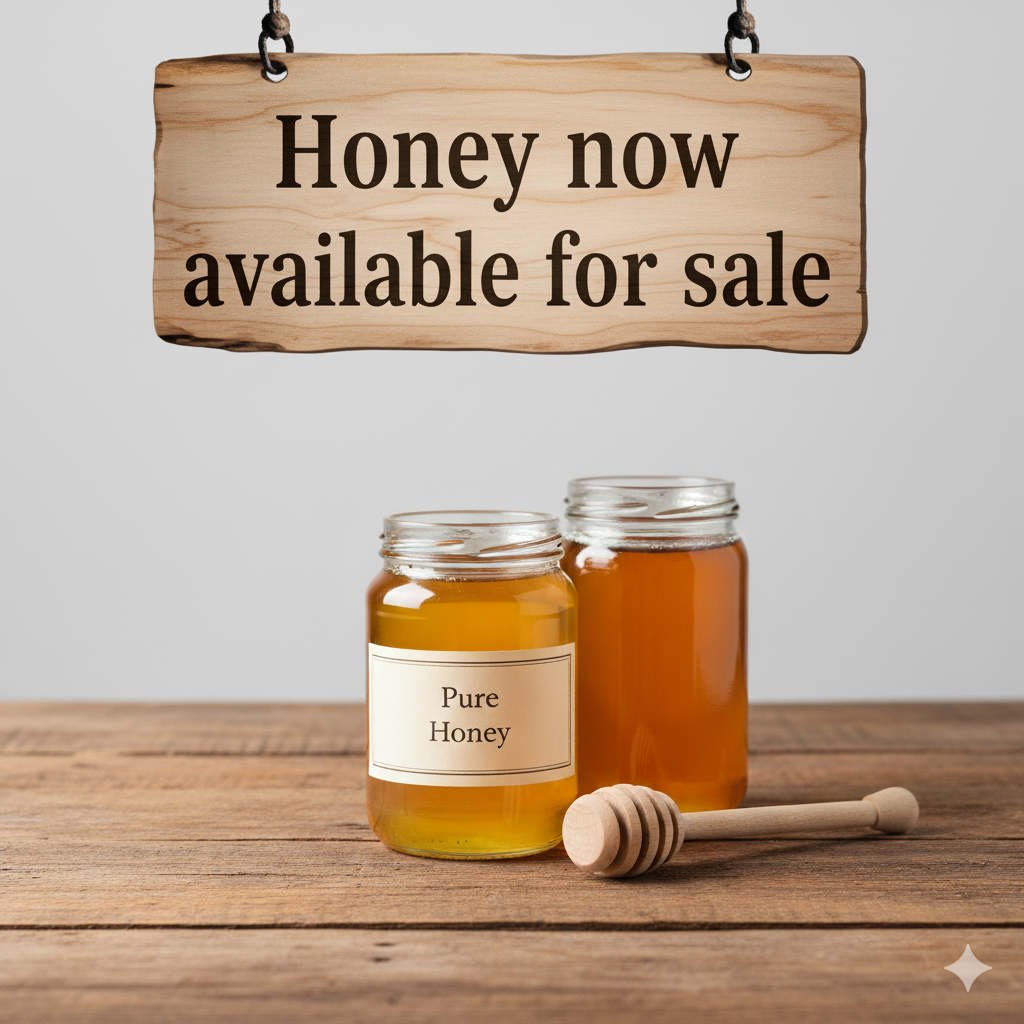Q1. What makes Cayman Bee Farm honey unique?
Cayman Bee Farm honey is sourced exclusively from Cayman bees, ensuring its purity and exceptional quality. Our honey is free from sugar additives or preservatives, offering you a natural and unadulterated taste of the islands' rich flora and the hard work of our thriving bee population.
Q2. Is Cayman Bee Farm honey available for online purchase?
At the moment, our honey is primarily available through retail outlets. However, we are continuously exploring options to make our honey accessible for online purchase in the future. Stay updated through our website and social media channels for any online purchasing opportunities.
Q3. Where can I purchase Cayman Bee Farm natural raw honey?
Our natural raw honey will soon be available at select retail outlets. Stay tuned for further details and announcements regarding specific locations.
Q4. How long does each maintenance visit take?
The duration of each maintenance visit can vary depending on the hive's size, complexity, and the specific needs identified during the inspection. On average, a maintenance visit can take anywhere from 30 minutes to an hour.
Q5. What does the private hive maintenance service include?
Our private hive maintenance service includes monthly inspections of the hive. Our experienced team assesses the hive's health, checks for signs of disease or pests, evaluates the food supply and water sources, and provides necessary support and interventions as needed.
Q6. Why is private hive maintenance important?
Private hive maintenance is crucial to ensure the long-term health and productivity of your hive. Regular monitoring helps detect any potential issues early on, allowing for prompt intervention and prevention of hive problems. It also provides peace of mind for hive owners, knowing that their bees are being cared for by professionals.
Q7. What is private hive maintenance service?
Private hive maintenance service refers to our monthly monitoring and support services specifically designed for customers who have beehives on their own property. We ensure the health and well-being of the hive through regular inspections and provide necessary resources to maintain its vitality.
Q8. What happens to the bees after removal?
After removal, the bees are transported to our bee farm where they are integrated into our existing bee population. Our farm provides a nurturing environment with abundant food sources, ensuring the bees are well cared for and can continue their vital role as pollinators.
Q9. Is it safe to have beehives removed from my property?
Yes, our experienced team follows safety protocols to ensure a secure removal process. We take precautions to minimize any risks or disturbances, both for the property and the bees, ensuring the safety of all involved.
Q10. How do you remove and relocate beehives?
Our trained professionals use specialized techniques to carefully remove beehives. We prioritize the well-being of the bees throughout the process. Once removed, the beehives are relocated to our bee farm, where they can continue to thrive in a controlled environment.
Q11. Why would I need beehive removal and relocation services?
Beehives can sometimes pose a threat to residential or commercial properties, causing concerns for safety. Our removal and relocation service ensures the safe and humane removal of beehives from unwanted areas, protecting both people and bees.
Q12. How can I support bee farms and beekeepers?
You can support bee farms and beekeepers by buying locally produced honey, beeswax products, and other bee-related items. Planting bee-friendly flowers and avoiding the use of pesticides in your garden can also help create a favorable environment for bees.
Q13. Can anyone become a beekeeper?
Yes, anyone can become a beekeeper with the necessary knowledge, skills, and equipment. However, it is important to learn about beekeeping practices, understand the needs of bees, and follow local regulations and guidelines for keeping bees.
Q14. How do bee farms benefit the environment?
Bee farms benefit the environment by providing pollination services to nearby plants and crops, thus enhancing biodiversity and supporting food production. Additionally, the presence of bee farms can help raise awareness about the importance of bees and the need for their conservation.
Q15. Are all bees honeybees?
No, not all bees are honeybees. Honeybees belong to the genus Apis and are the most commonly managed species for honey production. There are also many other species of bees, such as bumblebees and solitary bees, that contribute to pollination but do not produce honey in large quantities.
Q16. How do beekeepers harvest honey?
Beekeepers harvest honey by carefully removing the honey-filled frames from the beehive. They then extract the honey from the frames using specialized equipment such as honey extractors or crush and strain methods. The honey is then filtered and stored for consumption or sale.
Q17. How is honey produced?
Honey is produced by bees through a process of collecting nectar from flowers. Bees transform the nectar into honey by regurgitating and evaporating the water content. They store the honey in honeycomb cells, where it matures and is sealed with beeswax.
Q18. What do bees eat?
Bees primarily feed on nectar, which they collect from flowers. Nectar is a sugary liquid produced by flowers as a reward for pollination. Bees also collect pollen, which serves as a protein source for their brood.
Q19. How many bees are typically in a hive?
A healthy hive can consist of thousands of bees. The exact number can vary depending on the time of year, hive strength, and species of bees.
Q20. What is a bee farm?
A bee farm, also known as an apiary, is a place where bees are kept and managed for the purpose of honey production, pollination services, or both.
Q21. Are there different varieties or flavors of honey available?
Our honey reflects the diverse floral sources of the Cayman Islands, resulting in a unique flavor profile. However, the specific varieties or flavors may vary based on seasonal changes and the natural nectar sources available to our bees. Each jar of Cayman Bee Farm honey captures the distinct essence of our local environment.
Q22. Why are bees important?
Bees play a crucial role in pollinating flowers, plants, and crops, contributing to the reproduction of many fruits, vegetables, and nuts. They are essential for maintaining biodiversity and supporting food production.


